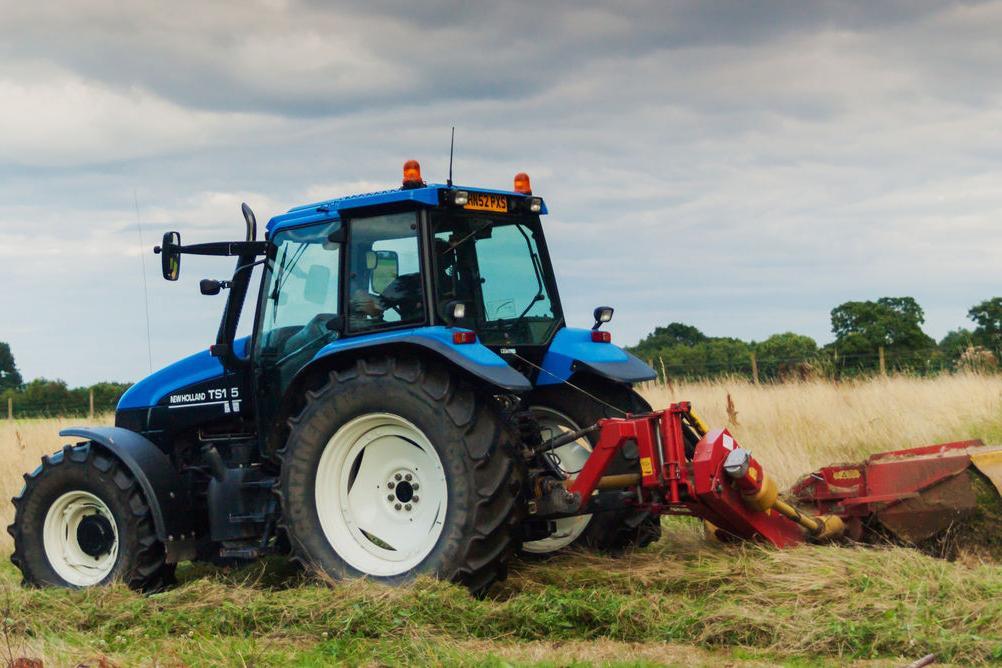Brexit's impact on farming policy will take Britain back to the 1920s – but that's not necessarily a bad thing
Subsidies aren’t working but there are other options

Not much regarding Brexit is clear. But one thing we do know is that the UK’s decision to leave the EU has triggered proposals to implement the most significant changes to agricultural policy since it joined the European Common Agricultural Policy (CAP) in 1973.
The CAP was designed to provide a stable, sustainably produced supply of safe, affordable food. It also ensured a decent standard of living for farmers and agricultural workers, providing support through subsidies.
Now, the UK’s main political parties agree direct subsidy provision has to be reviewed and fundamentally changed. The current system favours large landowners over the small and is seen by many as encouraging inefficiency in farming practices. At present, support comes in the form of a two-pillar system, one providing direct support payments, and the other giving payments which reward the farmer for conducting environmental practices through participation in agri-environment schemes.
In its election manifesto, the Conservative Party agreed to maintain all subsidy support until 2022. After that, it will move to a one-pillar system, providing payment for public goods, woodland regeneration, carbon sequestration and greenhouse gas reduction, among other things. It would shift towards a free market economy where payments would no longer directly support farming businesses without public good provision.
Speaking to Farming Today, environment secretary Michael Gove, said: “There’s a huge opportunity to design a better system for supporting farmers, but first I need to listen to environmentalists about how we can use that money to better protect the environment … and also to farmers to learn how to make the regime work better.”
Labour Party policy meanwhile aims to reconfigure funds for farming to support smaller traders, local economies, community benefits and sustainable practices. Both major parties through their manifestos seem to agree in principle that change must – and will – come, albeit for differing reasons.
When combined with exit from the single market and the customs union, these policies will create an agricultural playing field pretty similar to that of 100 years ago.
1921 – 1931
During World War I and the post-war reconstruction, the agriculture and food ministries controlled their respective industries. This culminated in the Agriculture Act (1920) which provided support for farmers in the form of guaranteed prices for agricultural products and minimum wages for farm labourers. But within six months of its implementation, falling prices and a struggling economy forced the repeal of the act, which returned the country to the laissez-faire economy that had existed before 1914, when there was a free market economy with little or no government involvement.
At this time, Labour and the Conservatives were united in their anti-subsidy approach, strongly believing agricultural issues should be solved in the open market.
These sentiments – which eventually led to a free market period lasting from 1921-1931 – are reflected in the policies of today. The 1920s Labour Party opposed state support to farmers while land was privately owned – today, Labour wants to move subsidies away from wealthy landowners.
In the 1930s the Conservatives stated: “It is no longer national policy to buy all over the world in the cheapest markets”. Their ambition today is to: “make a resounding success of our world-leading food and farming industry; producing more, selling more, and exporting more of our great British food”.
However, there were some significant downsides when the Agriculture Act was repealed: agricultural wages fell by as much as 40 per cent. Productivity fell too, rural poverty increased, small farms failed and land was abandoned through urban migration. Some described the countryside as a desolate waste.
Future rules
Not all see small-scale farm failure as bad, however. In the 1960s, agricultural economist Professor John F. Nash described farmer support as: “providing small or average farmers with what is considered a reasonable income, encouraging them to remain small or average farmers. They will remain in farms that would otherwise be unprofitable or use systems which otherwise might be too costly.” He argued that there were too many small farms and they needed to increase their output to survive without subsidies.
Though uncertainty remains around the precise nature of future policy, it will definitely affect the shape of agriculture in the UK. Small, unproductive farms may struggle to survive and tenancies may not be renewed. A reduction in land prices could see small farms bought out by larger enterprises.
Cutting subsidies could be the best thing for Britain environmentally: it could encourage more farmers to pursue sustainable practices. But in 1986, when New Zealand removed farming subsidies, it had the effect of changing farm structure from small to large-scale commercial units. This model, while viewed as a success in productivity and innovation terms, had a devastating effect on the environment.
But, if implemented, the Conservative manifesto pledge would work very differently to the New Zealand example, providing alternatives to increased production through support to farmers for the provision of environmental services. Nothing is definite. Uncertainty ensues – and farmers can only wait to see what happens and hope that a step into the past can make for a brighter future.
David Arnott is a PhD researcher at Bangor University. This article was originally published on The Conversation (www.theconversation.com)
Join our commenting forum
Join thought-provoking conversations, follow other Independent readers and see their replies
Comments
Bookmark popover
Removed from bookmarks